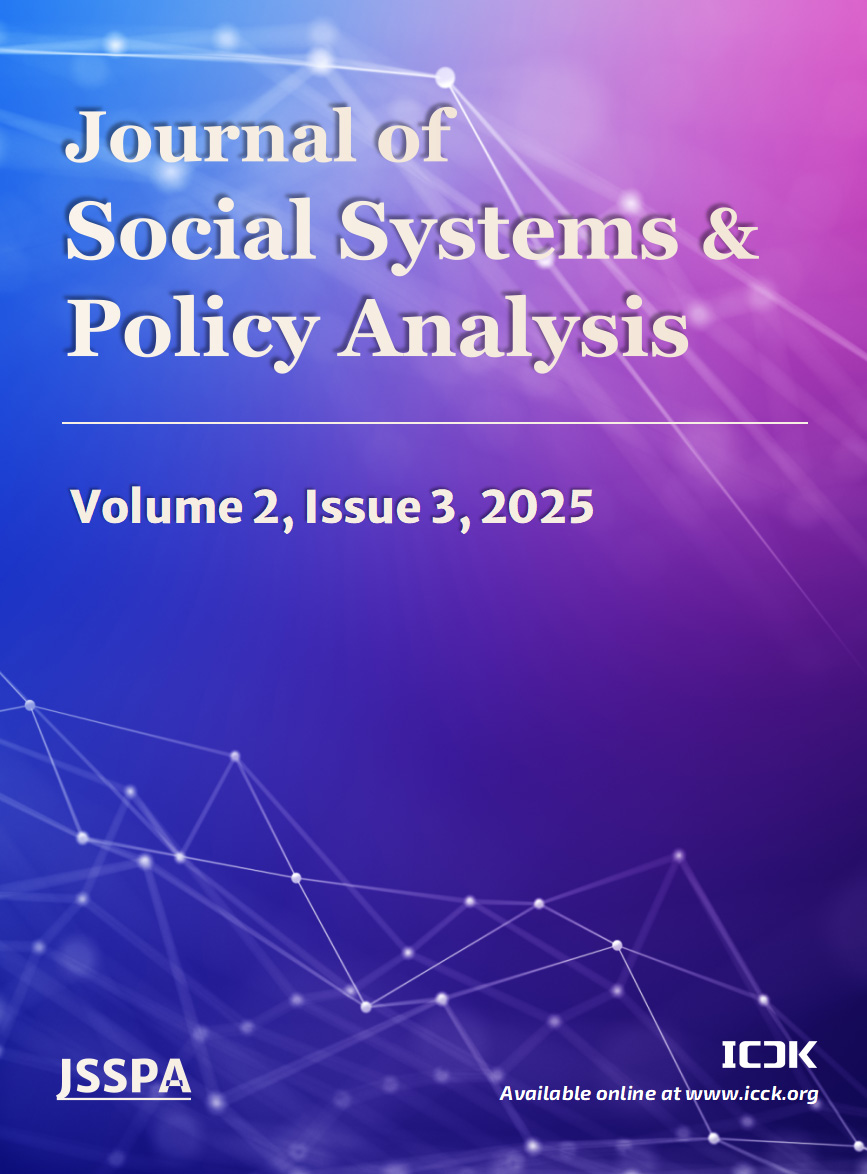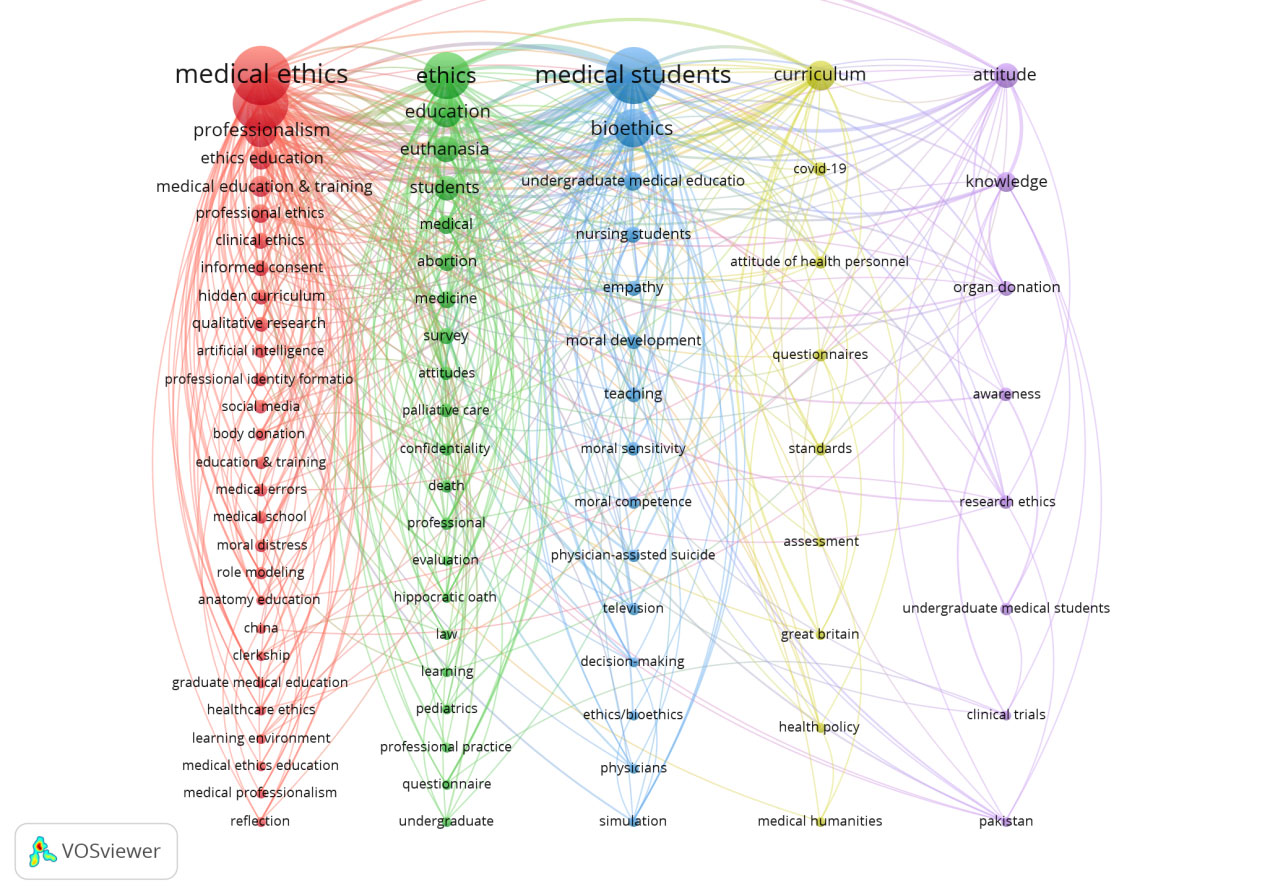Abstract
This study conducts a bibliometric and scientometric analysis of global research trends in medical ethics education from 2000 to 2025. Drawing on 443 English-language articles retrieved from the Scopus database, the analysis employs VOSviewer to map knowledge structures, identify thematic clusters, and reveal intellectual trajectories. Results show a sustained growth in publication volume and increasing scholarly attention to ethics education across multiple dimensions. Keyword co-occurrence and clustering analysis identify five core thematic areas: ethical identity formation, student engagement with bioethical dilemmas, moral development in early education, public health ethics in policy contexts, and research ethics awareness. The field has evolved from a focus on normative instruction to a more integrated, contextual, and experiential model of ethics education, emphasizing identity, affect, and systemic accountability. Highly cited works highlight the importance of the hidden curriculum, reflective practice, and simulation-based learning. This study provides a comprehensive knowledge map of the field and offers insights for future pedagogical design and policy formation. By clarifying conceptual foci and research frontiers, it contributes to the strategic development of ethics education within increasingly complex medical and societal environments.
Data Availability Statement
Not applicable.
Funding
This work was supported without any funding.
Conflicts of Interest
The authors declare no conflicts of interest.
Ethical Approval and Consent to Participate
Not applicable.
Cite This Article
APA Style
Wang, B., Ali, D. A., & Duraipandi, O. (2025). Ethical Cognition and Attitudes of Medical Students: A Bibliometric Analysis from 2000 to 2025. Journal of Social Systems and Policy Analysis, 2(3), 166–180. https://doi.org/10.62762/JSSPA.2025.890944
Publisher's Note
ICCK stays neutral with regard to jurisdictional claims in published maps and institutional affiliations.
Rights and Permissions
Institute of Central Computation and Knowledge (ICCK) or its licensor (e.g. a society or other partner) holds exclusive rights to this article under a publishing agreement with the author(s) or other rightsholder(s); author self-archiving of the accepted manuscript version of this article is solely governed by the terms of such publishing agreement and applicable law.


 Submit Manuscript
Edit a Special Issue
Submit Manuscript
Edit a Special Issue

